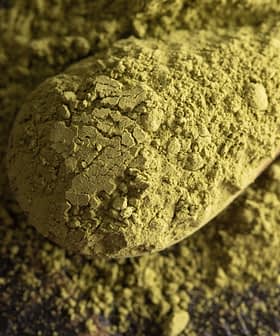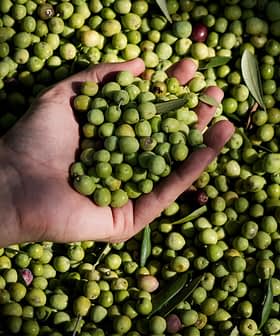Med Diet Benefits Similar to Walking 4,000 Steps, Study Finds

A new study shows that the benefits of a Mediterranean diet are similar to walking 4,000 steps a day, improving fitness and metabolic health. Eating a healthy diet rich in ingredients like olive oil can lower the risk of heart disease, stroke, and mortality, and incorporating extra virgin olive oil into the daily diet can provide numerous health benefits.
A new study published in the European Journal of Preventative Cardiology shows that the benefits of a Mediterranean diet are similar to walking 4,000 steps a day.
“The improvement in fitness we observed in participants with better diets was similar to the effect of taking 4,000 more steps each day,” Michael Mi, a cardiologist at Boston’s Beth Israel Deaconess Medical Center and study author, told Medical News Today.
Mi describes the study as observational, exploring the relationship between diet, fitness and metabolism.
See Also:Health NewsThe data suggests that eating a healthy diet may be associated with better metabolic health. The study examined participants’ blood samples for metabolites associated with poor diet or favorable diet and fitness.
While the metabolic data confirms that eating healthily is related to better fitness, it was inconclusive that eating well caused better fitness or that better fitness inspired healthier eating.
Researchers studied 2,380 people in the Framington Heart Study, 54 percent of whom were women with an average age of 54.
Participants were evaluated for physical fitness, food frequency, fasting blood concentrations of 201 metabolites and a dietary quality evaluation.
The dietary quality was assessed by two measures associated with good heart health: the Alternative Healthy Eating Index (AHEI) and the Mediterranean-Style Diet Score (MDS). In both indexes, the higher score indicates a better outcome.
According to Natalie McCormick, a medical research fellow at Harvard Medical School, “AHEI is more oriented toward reducing the risk of chronic disease.”
Researchers examined the connection between fitness and diet, evaluating factors such as daily physical activity level, energy intake, body mass index, smoking status, cholesterol, blood pressure, diabetes, age and sex.
Compared to an average score, the data for AHEI was 67, an increase of 13 points. The data for MDS was approximately 12, a five-point increase above the average.
Getting 10,000 steps per day is considered the gold standard for health. However, Jack Craig, a certified personal trainer for Inside Bodybuilding, told Medical News Today the average number of steps per day most sedentary people are getting in the United States is 4,000.
“Mediterranean diets are among the most notorious heart-healthy diets,” he added. “They are rich in ingredients. Walking throughout the day, even in short five-minute breaks, can reduce blood pressure and blood sugar, as well as elevate your mood.”
Walking is a top recommendation from the American Heart Association (AHA) and provides an important stimulus for balance, bone density, flexibility and muscle development.
AHA notes that 10,000 steps a day may seem too intimidating for beginners. However, Amanda Paluch, an assistant professor at the University of Massachusetts’ School of Public Health and Health Science, said 5,000 to 6,000 steps may benefit heart health.
“The message is to move more,” Paluch said. “Just getting incremental increases in your steps could be meaningful in your cardiovascular health.”
According to a Stanford study, walking boosts creative inspiration. The study found that creative thinking skyrocketed by 60 percent.
To take this into daily practice, Stanford researchers recommend looking for opportunities to swap sitting for standing. For example, consider turning a work meeting into a walking meeting. Find ways to integrate bursts of physical activity into the day.
Ruth Mercurio, the owner of We Olive and a former member of the board of directors for the California Olive Oil Council, told Olive Oil Times that her company promotes the Food and Drug Administration’s qualified health claim for olive oil.
“At We Olive, we proudly promote the FDA’s recommendation of consuming at least two tablespoons of extra virgin olive oil daily for longevity, as it unlocks many wonderful health benefits.
“Extensive studies over the past 50 years consistently reveal that incorporating extra virgin olive oil into your diet significantly lowers the risk of heart disease, stroke and mortality,” she added. “Additionally, it aids in regulating insulin levels, strengthening the immune system, reducing the risk of certain cancers and promoting improved digestive and brain health.”
Shaana Rahman, the owner of BoccaBella Farms, told Olive Oil Times that research into the antioxidants and anti-inflammatory bioactive compounds in extra virgin olive oil continues to return exciting results.
“The process of making a true extra virgin olive oil protects the phenols in the olive oil, which are thought to be one of the keys to extra virgin olive oil’s health benefits,” she said. “It’s so important for people to understand the difference in grades of olive oil and how the olive oil is processed, as that can make a big difference in the potential health benefits.”
According to Kathy McManus, director of the Department of Nutrition at Brigham and Women’s Hospital, it is easy to incorporate healthy AHEI foods into the daily diet.
Top choices to focus on include vegetables, fruit, whole grains, vegetable protein, fish and healthy fats.
In a Harvard Medical School interview, McManus offers suggestions for easy dietary upgrades.
She suggested choosing five vegetables a day. Aim for four servings of fruits daily and five to six servings a day of whole grains. Emphasize vegetable protein and a weekly dose of fish. Enjoy the benefits of unsaturated fats, such as olive oil. Swap saturated fats such as butter in favor of healthy oils.
“An easy way to incorporate olive oil into your health routine is by adding two tablespoons into your morning smoothie,” Rahman said.
Richard and Myrna Meisler, owners and farmers of the San Miguel Olive Farm, shared a unique perspective on the health benefits of high-quality extra virgin olive oil.
“Richard is celebrating his 85th birthday on Friday, and Myrna just turned 84,” they said. “We are full-time users of our healthful olive oil and work pretty much full-time in our business. Twenty-one awards at NYIOOC World Olive Oil Competition… that should tell the story.”









